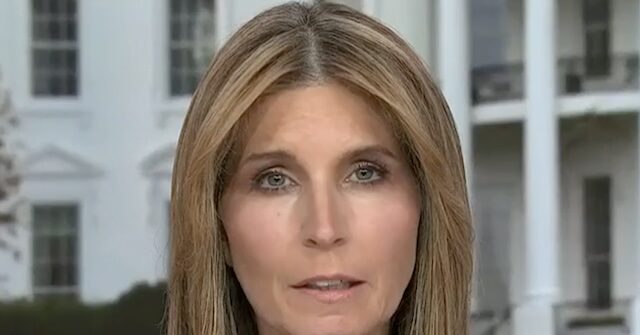On “Deadline” with Nicolle Wallace, a powerful discussion emerged surrounding the resurfacing of former President Donald Trump’s controversial views, particularly his disdainful remarks about race in the context of a recent report from The Atlantic. Wallace emphasized the critical nature of the upcoming presidential race, highlighting that the actions and attitudes of candidates, especially Trump, should be brought to light, especially given the precarious position in which the nation currently finds itself. The focus of the conversation gravitated around Trump’s alleged remarks about Vanessa Guillén, a 20-year-old Army private whose tragic murder at Fort Hood drew national attention.
Wallace referenced the reporting by Jeffrey Goldberg of The Atlantic, who has extensively covered Trump’s incendiary comments on issues of race and military service. The specific incident under discussion occurred during an Oval Office meeting in December 2020, where Trump confronted the financial implications of Guillén’s funeral. Guillén, who was murdered while serving, was the daughter of Mexican immigrants and represented a tragic loss for her family and the military community. Wallace insisted that Trump’s reaction not only revealed a lack of respect for military service members but also demonstrated a troubling attitude toward those of minority backgrounds.
According to the report, when the funeral costs were presented to Trump, he questioned whether there was a bill and, upon learning it was $60,000, expressed outrage based on Guillén’s ethnicity. Wallace recounted how Trump reportedly stated, “It doesn’t cost 60,000 bucks to bury a fucking Mexican,” thus revealing a fundamentally disrespectful and dismissive view of the value of life in the military, especially for individuals from marginalized communities. His immediate reaction culminated in an order to his chief of staff to refuse payment for the funeral costs, indicating a troubling prioritization of finances over the honor and dignity owed to a fallen soldier.
The gravity of these remarks has particular resonance as the nation nears a pivotal election. Wallace underscored how this moment in history requires a thorough examination of candidates’ character and the implications of their actions and words. Trump’s remarks and the suggested indifference toward the military reflect not just personal failings, but raise broader questions about leadership and moral responsibility in the highest office of the land. As the presidential race tightens, Wallace argued that it is imperative for voters to recognize these revelations about Trump and consider the implications of his expressed beliefs and values.
Expressing urgency in the face of Trump’s behavior, Wallace asserted that the struggle for a more equitable and respectful political climate rests on holding candidates accountable for their actions. The reporting on Trump’s handling of Guillén’s funeral expense encapsulates a larger pattern of behavior that Wallace argued cannot simply be overlooked. The incident serves as a microcosm of the broader issue of how minority communities have historically been marginalized and disrespected, particularly in the context of national service and sacrifice.
In conclusion, Wallace’s discussion frames Trump’s alleged comments as emblematic of a deeper systemic issue in American society concerning race and respect for military personnel from diverse backgrounds. As the election approaches, the stakes could not be higher, and the implications of Trump’s disrespectful remarks must resonate with voters. As the political landscape continues to evolve, the need for critical examination of candidates’ values, particularly those that pertain to race and service, will be paramount for shaping a more just and equitable society.

